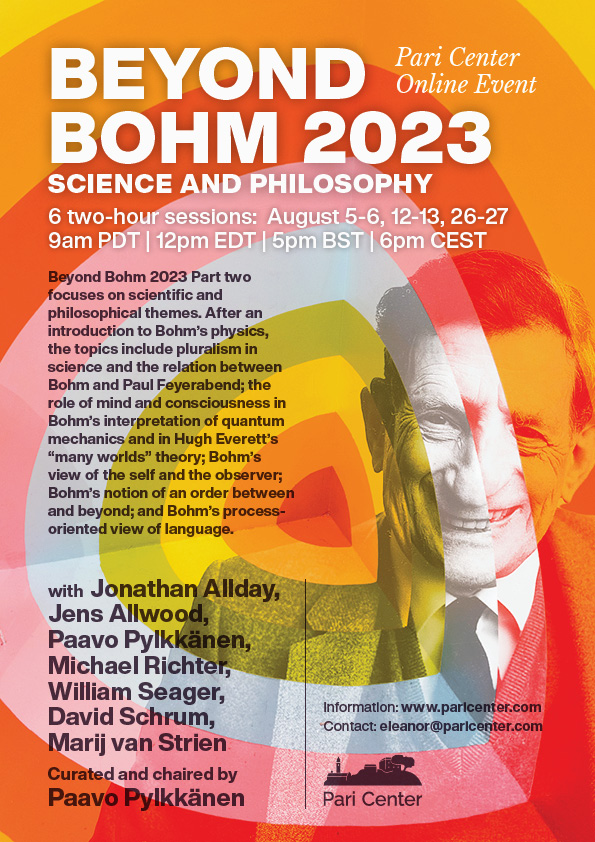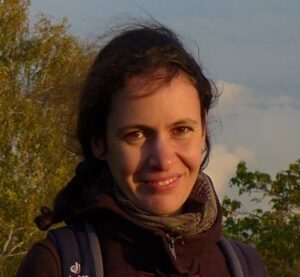Your cart is currently empty!

Bohm’s Views on Pluralism in Science and the Relation Between Bohm and Paul Feyerabend
- This event has passed.
August 6, 2023 @ 6:00 pm – 8:00 pm CEST


Bohm’s Views on Pluralism in Science and the Relation Between Bohm and Paul Feyerabend
with Marij van Strien
Chaired by Paavo Pylkkänen
Sunday August 6, 2023
9:00am PDT | 12:00pm EDT | 5:00pm BST | 6:00pm CEST
2-hour session
The session is live and you will be sent the RECORDING.
Quantum mechanics is often regarded as an important case for pluralism in science, as the theory allows for a plurality of interpretations. This talk shows that scientific pluralism is also historically connected to quantum mechanics: in particular, the philosopher of science, Paul Feyerabend developed his arguments for pluralism in the context of debates on quantum mechanics and in conversation with David Bohm.
In 1952, Bohm published an alternative interpretation of quantum mechanics, demonstrating the possibility of non-standard interpretations. Bohm himself regarded this interpretation merely as a starting point for a more thorough rethinking of the foundations of quantum physics, and argued that what was needed was the development of new concepts, which could form the basis for a genuinely new theory yielding new predictions. In this context, Bohm developed general arguments for pluralism in science: he argued that to avoid being trapped within a conceptual scheme, scientists should always actively try to develop alternatives to current theories. In 1957, Feyerabend and Bohm became colleagues in Bristol, where they regularly discussed physics and philosophy. Bohm had a large influence on the development of Feyerabend’s pluralistic philosophy of science: Feyerabend in fact attributed one of his main arguments for pluralism to Bohm. Feyerabend saw pluralism as particularly urgent in quantum physics: in his perception, Bohm’s alternative account of quantum physics was dogmatically rejected by the community of quantum physicists.
However, as Feyerabend’s understanding of the complexities of quantum physics and its historical development grew, his criticism of the standard interpretation of quantum mechanics gradually became weaker, and his views on pluralism changed: whereas pluralism remained an important virtue for Feyerabend, he no longer thought that it should be imposed on science as a methodological requirement. Meanwhile, Bohm’s attempts to develop a new conceptual framework for quantum physics remained largely unsuccessful, and from the late 1970s, he returned to his original interpretation from 1952. This interpretation has become increasingly popular, but it is not the genuinely new theory which Bohm envisioned: it largely uses classical concepts and has not yielded new predictions. Despite the plurality of interpretations of quantum mechanics which one can find nowadays, it is hard to find one which presents a new theoretical framework of the kind Bohm and Feyerabend envisioned. It thus seems that the pluralism for which Feyerabend and Bohm argued turned out to be hard to realize in practice.
To see the Full Beyond Bohm Program

Marij van Strien is a postdoctoral researcher at the Bergische Universität Wuppertal. After studying physics and history and philosophy of science at Utrecht University, she obtained a PhD at Ghent University. Her research focusses on the relation between physics and philosophy, and in particular the philosophical implications that have been drawn and can be drawn from theories in physics.
